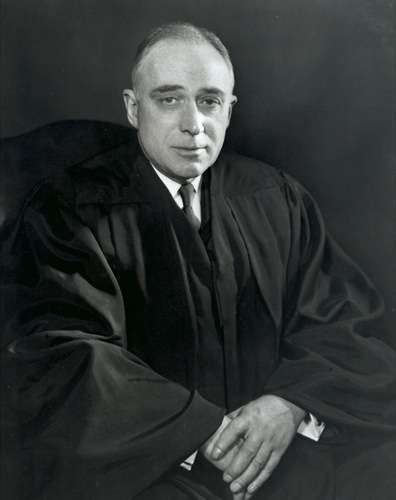The Volokh Conspiracy
Mostly law professors | Sometimes contrarian | Often libertarian | Always independent
Today in Supreme Court History: December 29, 1971
Editor's Note: We invite comments and request that they be civil and on-topic. We do not moderate or assume any responsibility for comments, which are owned by the readers who post them. Comments do not represent the views of Reason.com or Reason Foundation. We reserve the right to delete any comment for any reason at any time. Comments may only be edited within 5 minutes of posting. Report abuses.
Please to post comments



"Conservative conscience of the Court".
Today, would be between Breyer and Kagan.
That's interesting. Would Breyer or Kagan share Justice Harlan's dissenting views in Miranda v. Arizona?
"What the Court largely ignores is that its rules impair, if they will not eventually serve wholly to frustrate, an instrument of law enforcement that has long and quite reasonably been thought worth the price paid for it. There can be little doubt that the Court's new code would markedly decrease the number of confessions. To warn the suspect that he may remain silent and remind him that his confession may be used in court are minor obstructions. To require also an express waiver by the suspect and an end to questioning whenever he demurs must heavily handicap questioning. And to suggest or provide counsel for the suspect simply invites the end of the interrogation."
Would they share Justice Harlan's attitude in Oregon v. Mitchell: "I am of the opinion that the Fourteenth Amendment was never intended to restrict the authority of the States to allocate their political power as they see fit and therefore that it does not authorize Congress to set voter qualifications, in either state or federal elections....there is virtually unanimous agreement, clearly and repeatedly expressed, that 1 of the [Fourteenth] Amendment did not reach discriminatory voter qualifications."
Miranda:
https://www.law.cornell.edu/supremecourt/text/384/436
Mitchell:
https://www.law.cornell.edu/supremecourt/text/400/112&lang=en#writing-USSC_CR_0400_0112_ZX
Under Volokh's definition of the First Amendment, there would be no such crimes such as cyberharassment, cyberstalking. These would all be legal, and even encouraged as the malicious posts of a cybercriminal intent on destroying someone's life is treated as "precious speech" that adds significant value to the "marketplace of ideas."
Victims who are harassed and stalked by malicious, vengeful, mentally ill online psychopaths would have no escape, and no legal standing to protect themselves.
Anyone would be able to dox, shame, humiliate, disclose private information, make disgusting blogs to harass, etc... and purposefully employ Google SEO (keywords) to make websites that destroy someone's life, whether or not that person (or their family) actually deserve it. Regardless of the degree of malice or intent from the perpetrator.
Victims of stalking would never be able to escape their stalkers because the posts would remain online forever, and can forever impact the victim's career, dating, employment, social prospects.
That's what Volokh wants. That's what Google wants. Google pays Volokh to write some articles.
Volokh is trying his best to gaslight the pain and suffering of victims from new forms of online crime. He doesn't care. He only cares about the Big Tech firms giving him money behind the scenes.